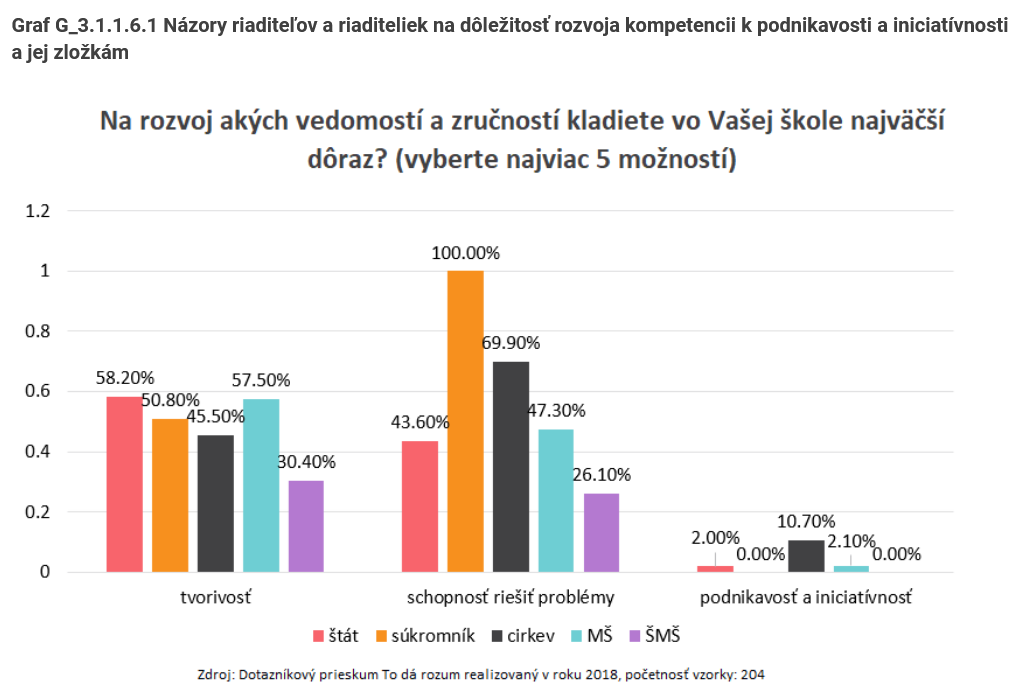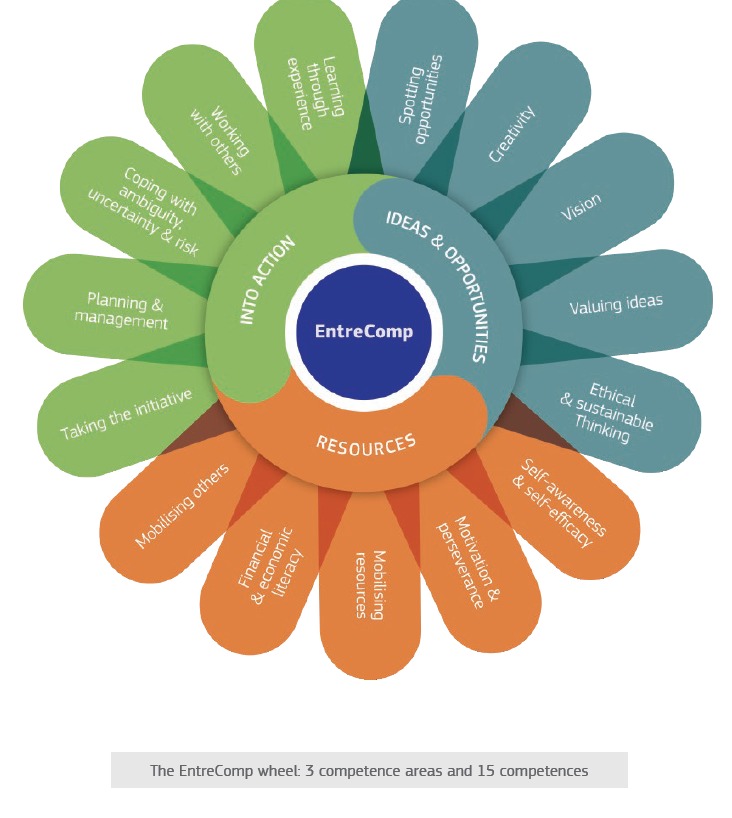Entrepreneurship in Open Future programme
Open Future programme develops children’s skills of the 21st century and leading them to become leaders of change in their communities. In other words, the programme focuses on what children themselves can bring to their surroundings, what they can change in the community through their interest, and on an individual level to inspire interest in public affairs, inclusion and empathy.
“Entrepreneurship and initiative encourage a committed approach to life, and in school they are also linked to pupils’ involvement in extra-curricular activities, as well as their willingness to enter into problem-solving. Creativity is a human ability that enables a person to find solutions in ordinary and unusual situations. According to headmasters and headmistresses of kindergartens and primary schools, as well as secondary school pupils, entrepreneurship and initiative are not among the skills that are given priority attention in the teaching process,” says the analysis of the project “To dá rozum”, which is devoted to the change of education in Slovakia.
On one hand, schools do not develop entrepreneurship in children; on the other hand, the analysis shows that these are skills in demand in society. “However, according to the results of the analysis of the interviews with employers, creativity, but also initiative and the ability to solve problems are important personal characteristics that they expect from employees. A committed attitude, entrepreneurship and creativity are also important characteristics of a personally and civically responsible personality,” the analysis says.

How do we encourage entrepreneurship in the Future OTHER programme?
In the development of entrepreneurship within the programme, we assume that entrepreneurship is one of the basic characteristics that children can apply in their future and in whatever they do. It will help them to become those who can recognise or create challenges and opportunities. This allows them to come up with their own projects, bring them to life and take responsibility for them. That is why social innovation has become a core element of Open Future curriculum. This is a goal that every participant in any form should achieve. By working on innovation, he develops his entrepreneurial skills while also developing other digital and soft skills (other learning areas of the programme).
In developing the entrepreneurship curriculum, we took the European EntreComp Competency Framework for Entrepreneurship as a basis and divided the individual competencies into the three years of the programme.

Self-awareness/self-efficacy
In the first year, we start with the children getting to know each other better, getting to know their strengths, personal motivations, weaknesses. Also what they enjoy and are interested in, because that is always the basis of what they will do.
Identifying and solving problems
Then we focus on individual, sub-topics within entrepreneurship and entrepreneurial thinking – the ability to: perceive the environment, observe the world around you, recognize problems, shortcomings, things that could be done better, and be able to name them. Of course, curiosity, an interest in your surroundings, in the world around you, and being proactive in coming up with your reactions and ideas are very important.
Ethical and sustainable thinking
Also for the first year, we bring key societal themes into discussion with our participants through the Sustainable Development Goals (SDGs), which link all three dimensions of sustainable development – economic, social and environmental.
Communication skills/creativity
Cross-cutting competences that cut across all the themes are communication skills and the development of creativity and imagination. These are first developed in soft skills. These are followed by entrepreneurial skills related to communication with the “end customer”, simple marketing, innovation, design and so on.
Mobilising and using resources/”Into action”
In the second year, it is a more coherent approach and process in which we follow up on a perceived problem. We guide children through the process of creating their own project, i.e. we look for possible solutions to the problem the children identify. We’re testing them, we’re validating them. We try to set them up so that the kids know that they need to understand their users/customers for whom they want to create solutions.
The aim is to design solutions that are useful, valuable and of interest. We guide children to the stage where they try to implement a solution to a problem through mobilizing resources and bringing the solution to life. As part of this process, consultants, experts on various topics, pass on their know-how to the participants in the creation of their own project.
The first year of the programme focuses on the starting points in entrepreneurship. The second to use entrepreneurship to create their own project, their own social innovation, which the children are engaged in in the third year. In the final year, they also deepen their knowledge in each area through fun challenges.